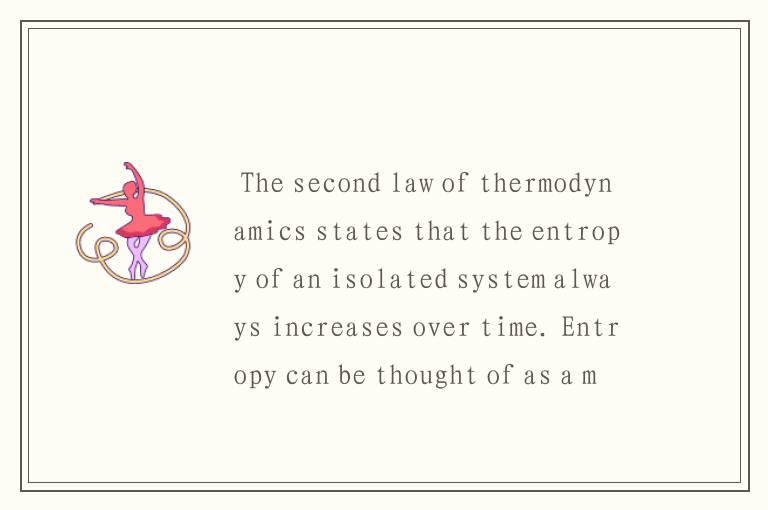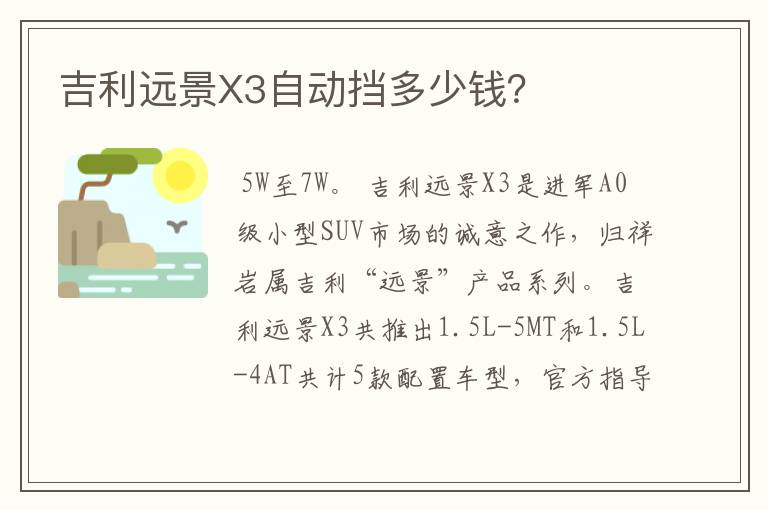瑞风m3plus

The second law of thermodynamics states that the entropy of an isolated system always increases over time. Entropy can be thought of as a measure of the disorder or randomness in a system. This law implies that it is impossible to convert all of the heat energy in a system into useful work with 100% efficiency.One way to think about this is through the concept of heat transfer. When heat is transferred from a hot object to a cold object, it will naturally flow from the hot object to the cold object until they reach thermal equilibrium. This is because there are more possible arrangements of particles in the cold object than in the hot object, so the heat energy tends to spread out and increase the overall disorder of the system.Another way to understand the second law is through the concept of energy degradation. When energy is converted from one form to another, such as from heat to work, some of the energy is always lost as waste heat. This waste heat increases the overall entropy of the system.The second law of thermodynamics has many practical implications. For example, it explains why perpetual motion machines, which would violate the second law by producing more work than the amount of heat energy put into them, are impossible. It also explains why it is difficult to achieve 100% efficiency in energy conversion processes, such as in power plants or engines.Overall, the second law of thermodynamics provides a fundamental understanding of the behavior of energy and heat in systems and sets limits on the efficiency of energy conversion processes.
相信关于瑞风m3的知识,你都汲取了不少,也知道在面临类似问题时,应该怎么做。如果还想了解其他信息,欢迎点击紫薯百科的其他栏目。
声明:本站所有文章资源内容,如无特殊说明或标注,均为采集网络资源。如若本站内容侵犯了原著者的合法权益,可联系本站删除。





